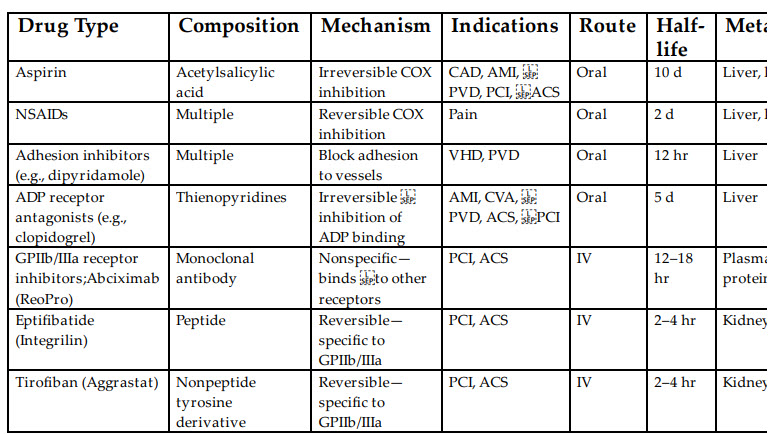Question 4#
A 68-year-old female in the intensive care unit on total parenteral nutrition due to ileus from recent abdominal surgery now has an STelevation myocardial infarction and was emergently taken to the cardiac catheterization laboratory. The cardiology team performs percutaneous coronary intervention in one of her coronary arteries and recommends continuation of antiplatelet agents.
Because she cannot tolerate oral aspirin currently, which other medication can be used?
A. PrasugrelB. Ticagrelor
C. Cangrelor
D. Clopidogrel
E. Argatroban
Correct Answer is C
Comment:
Correct Answer: C
The pathway for clot formation after percutaneous coronary intervention is primarily platelet mediated. Aspirin works by blocking platelet activation through irreversible acetylation of cyclooxygenase. The thienopyridines (ticlopidine, clopidogrel, and prasugrel), which are all oral drugs, bind to adenosine diphosphate (ADP) receptors. The GPIIb/IIIa receptor inhibitors are available in intravenous formulary (abciximab, eptifibatide, tirofiban, and cangrelor) making it useful when oral route of administration is not possible.
Antiplatelet Therapy:

ACS, acute coronary syndrome; AMI, acute myocardial infarction; CAD, coronary artery disease; COX, cyclooxygenase; CVA, cerebrovascular disease; IV, intravenous; NSAID, nonsteroidal anti-inflammatory drug; PCI, percutaneous coronary intervention; PVD, peripheral vascular disease; VHD, valvular heart disease.
Reference:
- Kaplan’s Cardiac Anesthesia. 7th ed. Elsevier; 2016.